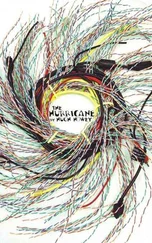Hanson and I left our flapping tent in utter darkness. The driven snow blocked out all but a few of the twinkling stars. Near the tent, a pile of spent oxygen bottles gathered a drift. They glowed bright in Hanson’s headlamp. Debris such as this would be left for all time. They were an addition to the landscape. The local Ha-Jing, whose lands included half of great Mallory, made good money selling permits to aspiring climbers, and this litter came with the riches. The south face of Mallory, which some climbers posited would make for an easier ascent, was governed by the irascible Hiti. Great climbers by all accounts, but miserable at governing. The only assaults on that face have been clandestine affairs. There had been some arrests over the years, but like many who come to Eno hoping to etch their name in the history books, most simply disappeared.
Hanson broke snow for the first hour, his head down in a stiff breeze. We had radios in our parkas but rarely used them. Good tentmates had little need for words. Roped in to one another, the union becomes symbiotic. You match paces, one staring at a flash-lit patch of bright snow, the other staring at a man’s back, illuminating a spot in a sea of darkness. Boots fell into the rapidly filling holes of the climber ahead, each lifting of a crampon some new torture, even with the springs of the powered climbing pants taking most of the strain.
I’d lost count of the number of peaks we’d climbed together. It was in the dozens across a handful of planets, most of those climbs coming over the past five years. Climbers tend to orbit one another long before they share tents. The first time I met Hanson was back on Earth on a new route of Nanga Parbat, a small mountain, but notorious for gobbling souls. Climbers called her “Man Eater,” usually with knowing and nervous smiles. Tourists from other planets came to exercise on its west slope or to make an attempt on its south face while preparing for harsher climbs. Some took the tram to Everest to hike up to the top and join the legions who made that yearly pilgrimage only to walk away wondering what the fuss was about.
I tended to bite my tongue during such diminishing talks of my planet’s highest peak. My twenty-year partnership with Saul, my previous tentmate, had ended on a harmless run up Everest. There was a saying among the Hiti sherpas: Ropes slip through relaxed grips. The nearest I ever came to death was while climbing indoors, of all things. It wasn’t something I told anyone. Those few who had been there and the doctors who tended to me knew. When anyone noticed my limp, I told them it happened during my spill on Kurshunga. I couldn’t say that I’d failed to double back my harness and took a forty foot spill on a climb whose holds had been color-coded for kids.
Saul had also fallen prey to a relaxed grip. He had died while taking a leak on Everest’s South Col. It was hard to stomach, losing a good man and great friend like that. Hanson, who trudged ahead of me, had lost his former tentmate in more glorious fashion the same year Saul died. And so mountains brought couples together like retirement homes. You look around, and what you have left is what you bed down with. Ours, then, was a marriage of attrition, but it worked. Our bond was our individual losses and our mutual anger at the peaks that had taken so much from us.
As Hanson paused, exhausted, and I rounded him to break snow, I patted the old man on the back, the gesture silent with thick gloves and howling wind, but he bobbed his head in acknowledgement to let me know he was okay. I coughed a raspy rattle into my mask. We were all okay. And above us, the white plumes and airborne glitter of driven ice and snow hid the way to glory. But it was easy to find. Up. Always up. One more foot toward land that no man had ever seen and lived to tell about.
At sixty thousand feet—the height of two Everests stacked one on top of the other—man and machine alike tended to break down. We were at the limit of my regimen of steroids. The gears in my hiking pants could be heard grinding against one another, even over all that wind. And the grease smeared over the parts of my face not sheltered by the oxygen mask had hardened until it felt like plaster, like blistered and unfeeling skin, but to touch it and investigate it was to invite exposure and far worse.
Batteries meant to last days would perish in hours up there. The cold was death for them. And so our suits gave up as we moved from the death zone to a land that begged for a name far more sinister. The power left in struggling batteries went to the pistons and gears, routed away from the heaters. Fingers and toes went first. They would grow numb; the blood would stop flowing through them; the flesh would necropsy and die right there on the bone.
The Sherpa of Changli had a saying: A man can count on two hands all the climbs he conquers, and that man conquers nothing. I always took this to mean the more we summit the more we lose. Climbers were notorious for staring down bars in basecamp at lifted mugs, silently counting digits gone missing, making a measure of a man’s worth by how far they’d pushed themselves. Saul had a different take on the Changli saying. To the people who lived in the shadows of mountains, these were not things to conquer. To climb them was foolish, and who would think to do so? As much as I had loved Saul, he was always too politically correct for my tastes.
Breaking snow up that unnamed ridge, my mind turning to mush as supplemental oxygen and doped blood could only do so much, I felt the first pangs of doubt. My cough rattled inside my mask; my limbs felt like solid lead. Two days prior, at camp 5, I had pushed myself beyond my abilities. Eating and drinking moved from inconvenient chores to something I dreaded. My weight was down. I hadn’t been out of my clothes to see what I’d wasted away, just comforted myself instead on how much less I now had to lug to the top.
The radio in my parka clicked on with the sound of Hanson breathing. I waited a moment between arduous steps and listened for what he had to say. When the radio clicked off, I turned to check on him, my headlamp pointed at his chest so as not to blind him. Hanson was a strong climber, one of the strongest I’d ever seen. He had fallen back to the end of the rope that joined us, his breath clouding his mask. Lifting a hand a few inches from his thigh was all the wave he could muster.
“Take your time,” I told him, clicking the large switch on my belt. What I wanted to say was what the hell we thought we were doing. There, five thousand feet below us and eight light years away, was the tallest peak ever climbed. We were moving into the thin air above the highest of heads. We would have been in outer space on some small planets, in orbit around others. And still, we wanted to conquer more.
The rope between us drooped as Hanson took a few laborious steps. I turned and broke snow, resigning myself to an extra hour at the head, an extra shift to give him more rest. It was hard to know what drove you once you passed the thresholds of all pain. Maybe it was the thought of Shubert and Humphries somewhere above us, either in glory or buried in snow. Maybe it was the fear that Ziba had gotten Cardhil’s ankle sorted and that they would begin their push later that morning. Or maybe it was the promise I’d made to myself after telling my wife and kids that I would be safe. I had told them that I wouldn’t take chances. But I had already promised myself something different: I would come home with that final ridge named after me, or I wouldn’t come home at all.
My altimeter died at 62,000 feet, even though the manufacturer sold these with a guarantee of 100,000. Such guarantees were bullshit gestures with no real-world testing. As I climbed, I composed the post I would make on the forums complaining of its failure. And had my remaining fingers been any kind of functional, I would’ve removed the strap from my arm to save the weight. Instead, I carried one more dead thing up with me. From then on, I had to guess how high I was by the hour. It was still dark and we were probably at 63,100 feet when I stumbled across Humphries.
Читать дальше












